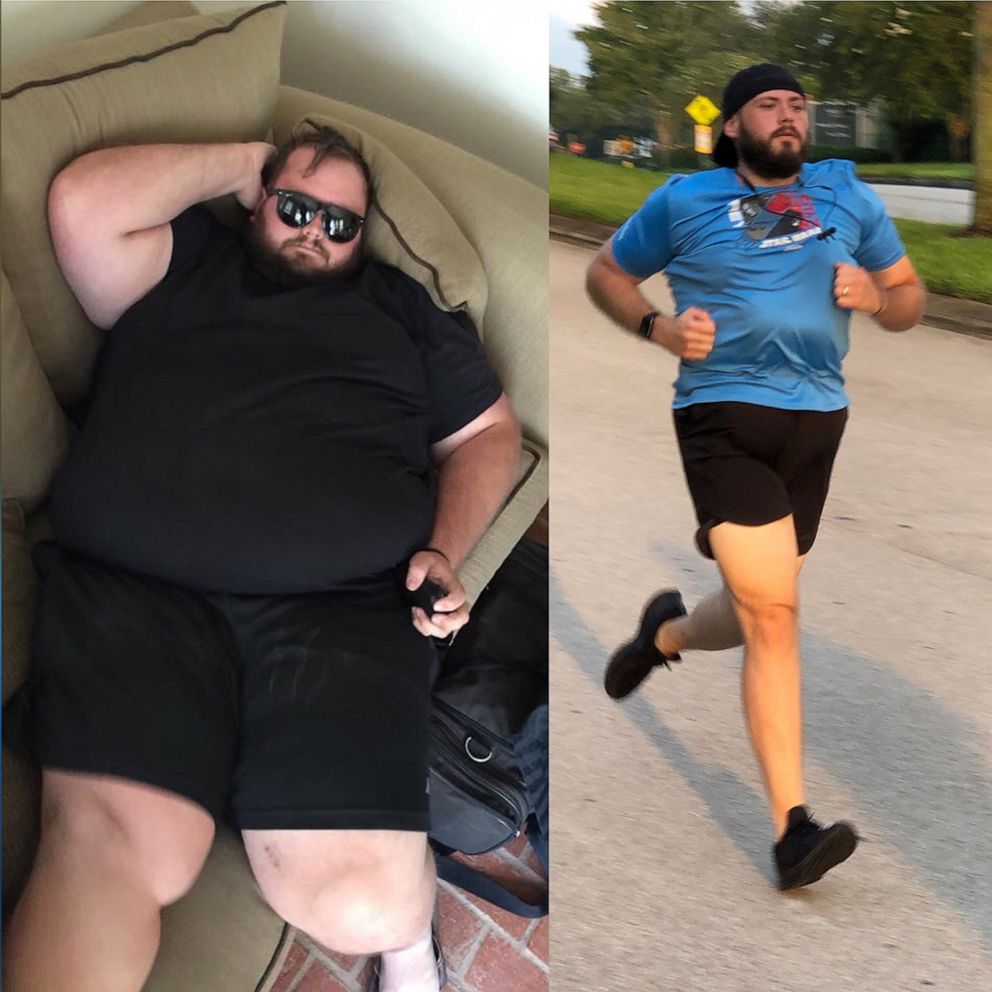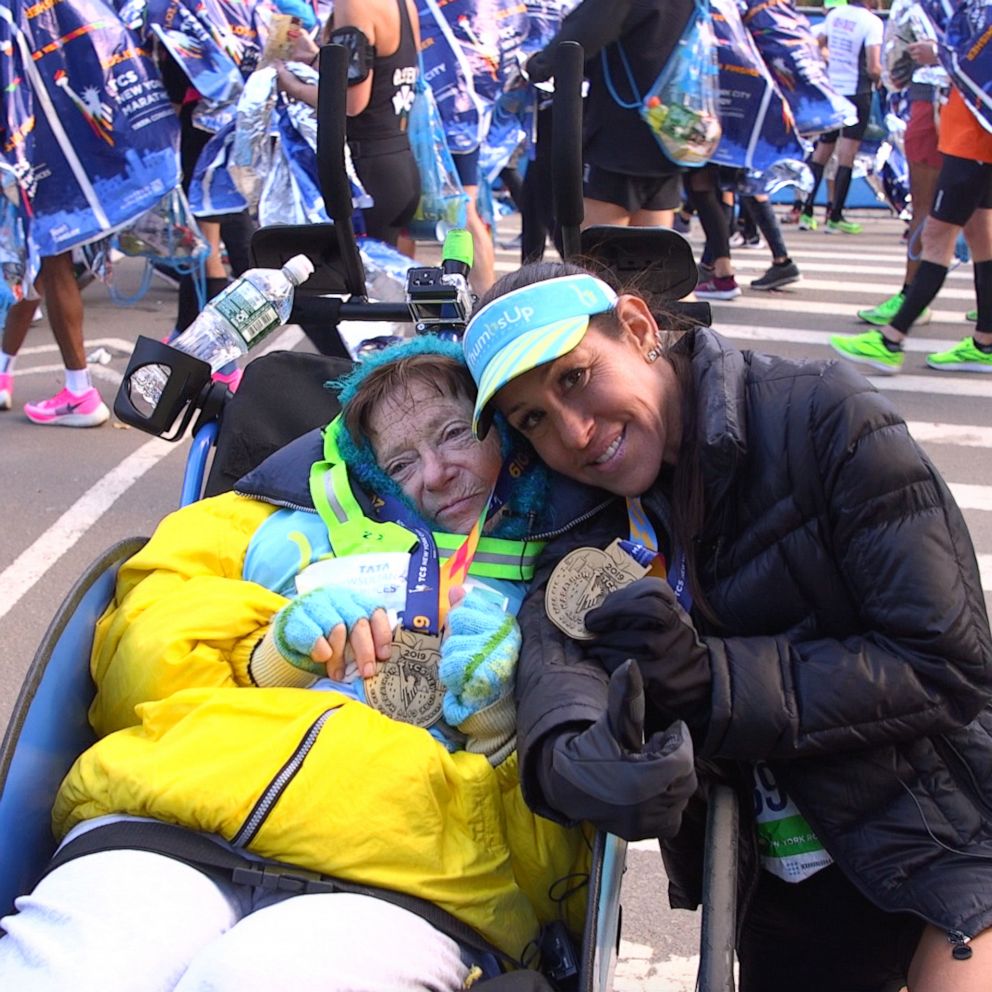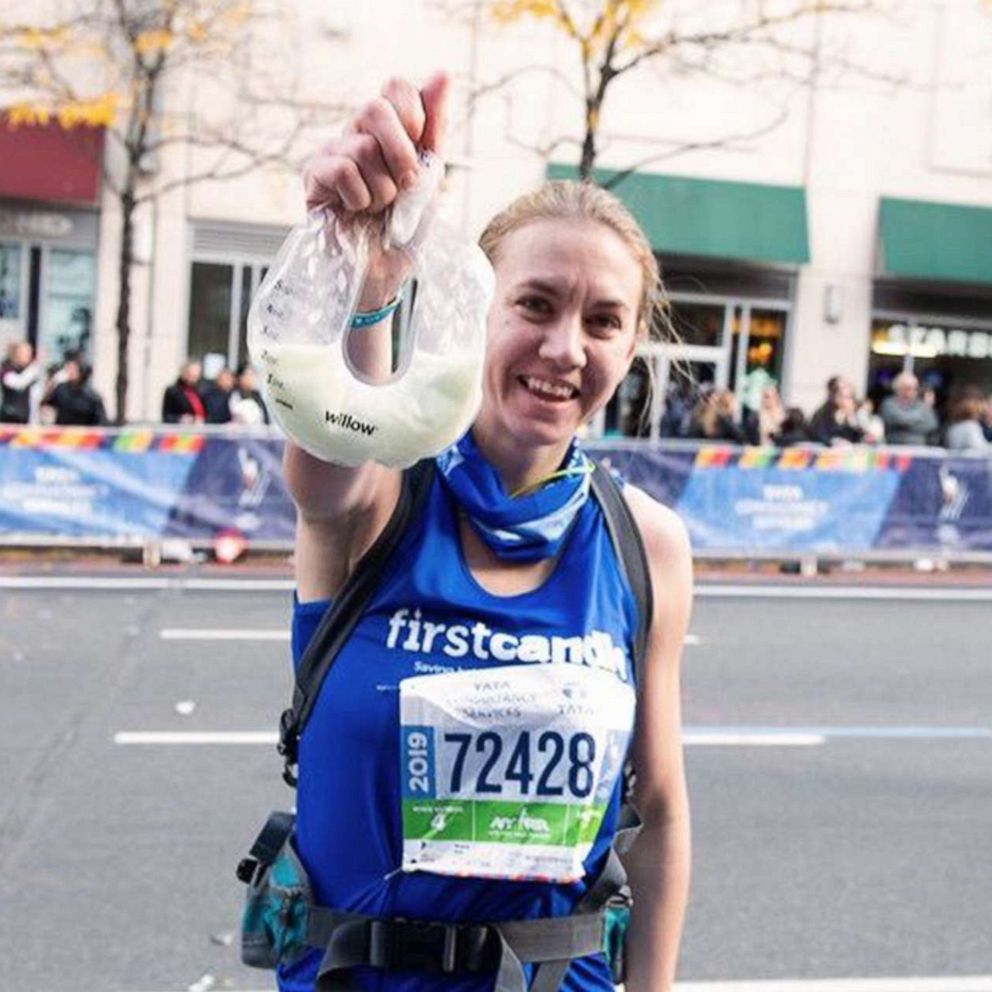25-year-old Molly Seidel overcomes eating disorder, injury to become unexpected Olympic marathon qualifier
Molly Seidel made the U.S. Olympic marathon team in a marathon debut.
Molly Seidel made the U.S. Olympic marathon team in her first sanctioned marathon.
The 25-year-old Boston resident ran the 26.2-mile race at a pace of 5:38 minutes per mile to win second place at the Olympic trials in Atlanta on Saturday.
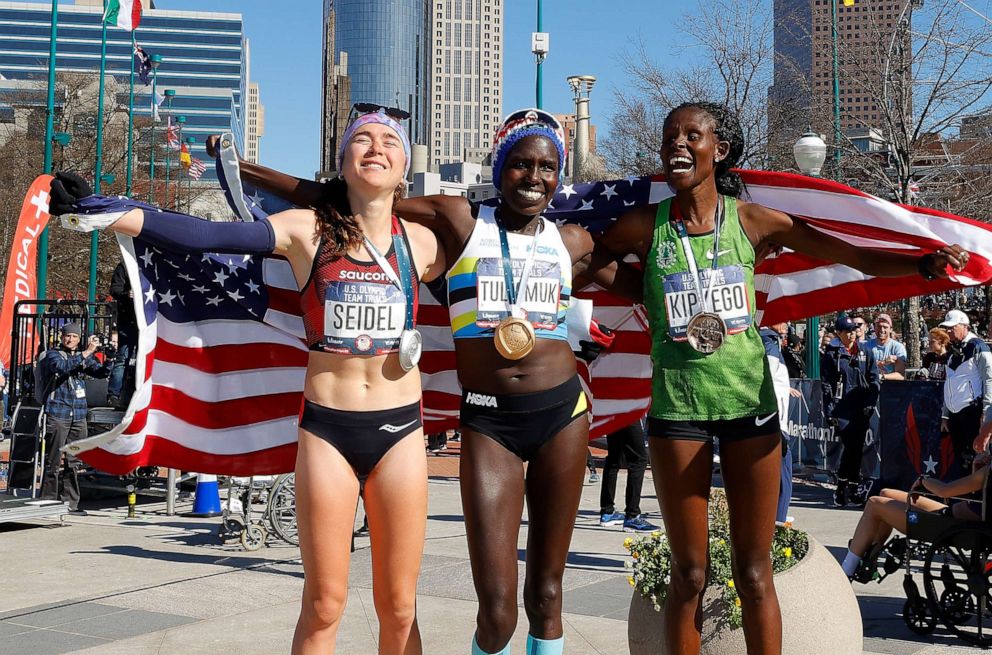
She will now start training for the 2020 Summer Olympics in Tokyo, which begin in July, a far cry from her life in Boston, where she worked as both a barista and a babysitter in order to make ends meet.
"I usually get up, do my main training session, come back, work a couple of hours at the coffee shop or go babysit, then can run later in the day," Seidel told The New York Times. "But things might be changing up a little bit when I get back to Boston."
Seidel, a Wisconsin native, was a standout runner at the University of Notre Dame, winning four NCAA titles before graduating from the school in 2016.
Her running career was later sidelined by both injury and an eating disorder that led her to seek treatment in an intensive recovery program followed by two years of therapy, according to a profile in Runners' World magazine.
Seidel, who missed the 2016 Olympic trials because of any injury, told the magazine she also battles obsessive compulsive disorder (OCD).
"With OCD, you just have this anxiety all the time and feel like you can’t control anything, so you develop patterns and behaviors," she told Runners' World in an interview published just before the trials. "I would compulsively knock on things in specific patterns because you feel like you have some control over the universe. Over time with running, it developed into turning my eating or my running into a control mechanism."
"When you get to college, it’s almost like this echo chamber where you see other women excelling in the sport with very low body weight," Seidel said. "I think the collegiate structure of running is great, but in a lot of ways is super harmful and not necessarily the most positive environment for girls, especially as they’re coming into their bodies as women."
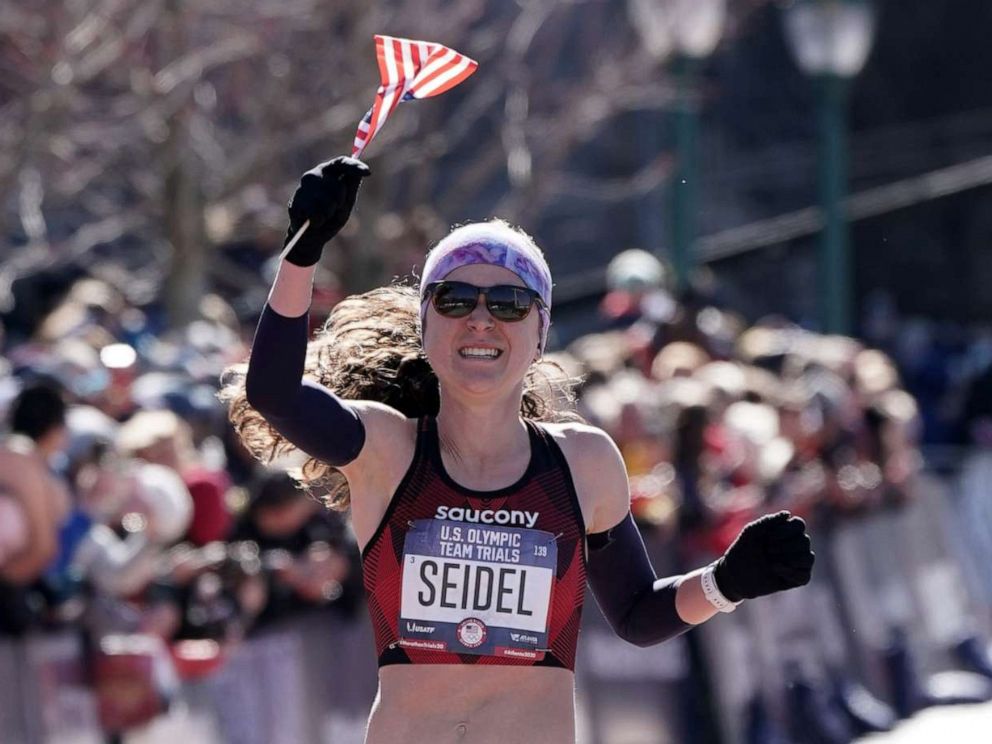
Seidel gave up sponsorships to focus on her recovery, telling Runners' World, "have to treat it with the gravity that it demands.".
She then moved to Boston, where she lives with her sister, a fellow runner whom she stopped to high-five on the sidelines of the marathon trial on Saturday, according to The New York Times. Seidel joined Saucony’s sponsored running group, the Freedom Track Club, and spent several weeks leading up to Saturday's race training in Flagstaff, Arizona.
“The whole Saucony team feels a deep sense of pride and excitement over Molly’s tremendous accomplishment,” Saucony president Anne Cavassa said in a statement. “She pulled off a fearless and awe-inspiring performance on a brutally tough course."
"This being her marathon debut, Molly ran fearlessly into unknown territory, pulling away from a field of the best female marathon runners in the country ... The whole Saucony team will be with Molly every step of the way as she now pursues her Olympic dream," said Cavassa.
Seidel told Runners' World before Saturday's race, in which she finished just seven seconds behind the winner, that she was hoping to finish somewhere in the top 20.
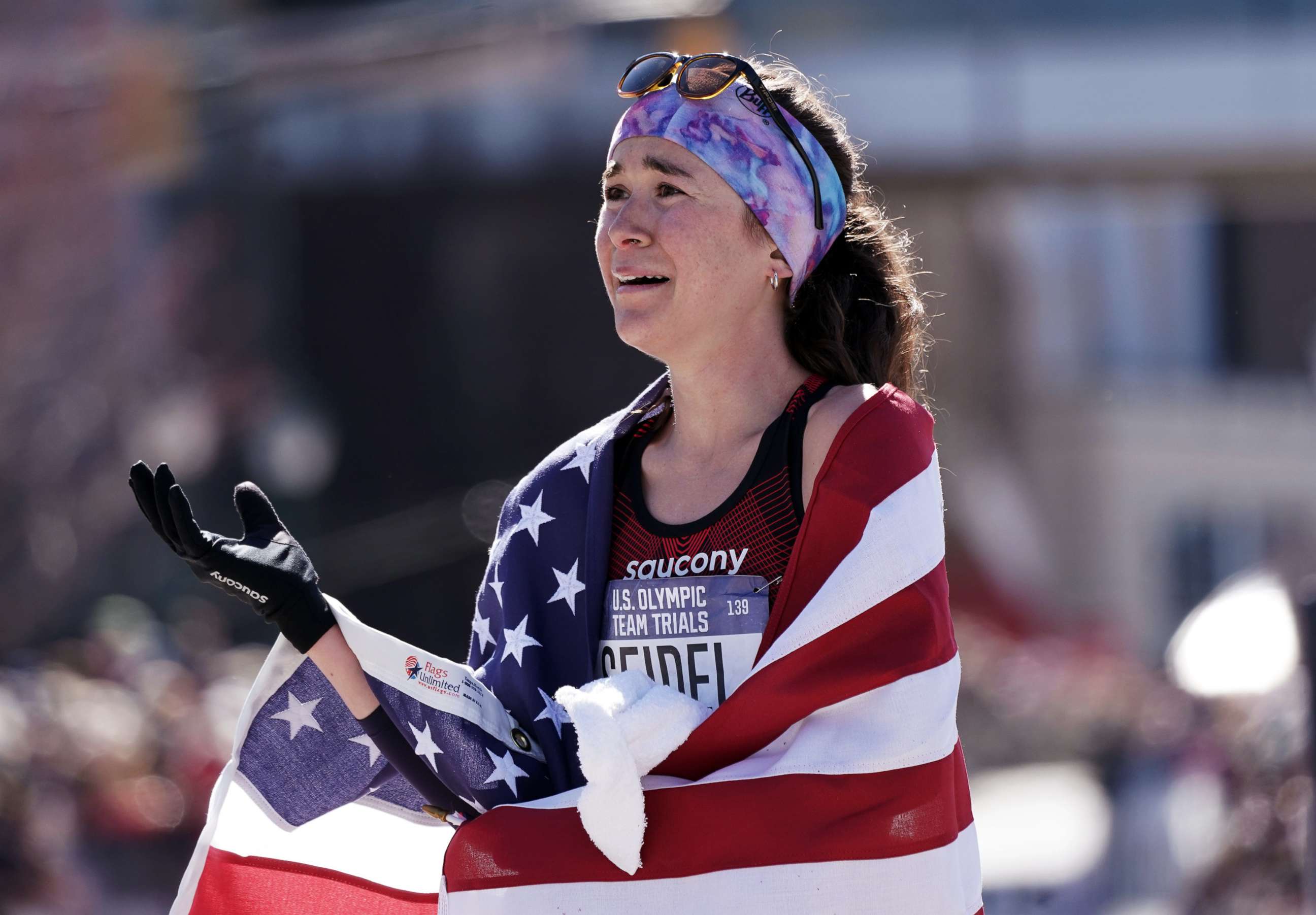
"You never really know what it’s gonna be like until you get there," she said. "It’s going to be an unknown of what your body can do. Keep an open mind and know how much it’s going to hurt, and be prepared for that amount of pain.
"Tenth to 20th range would be a good day for me. All of these women are really good and have the times [to back it up]," she added. "I want to go out and be realistic, but not count myself out."
